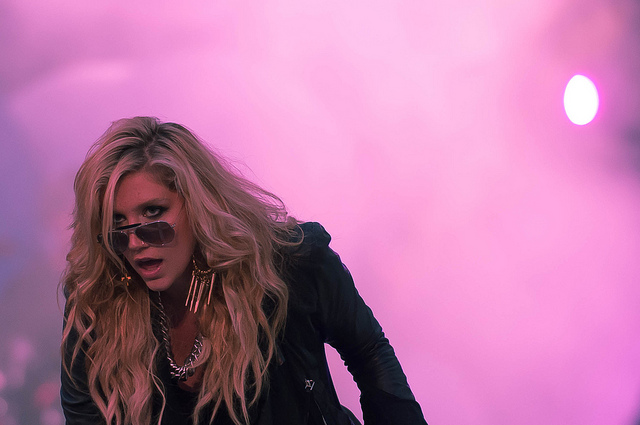When a New York Supreme Court justice denied pop singer Kesha release from her six-album music contract with Sony on Feb. 22, a storm of support erupted on social media for the songstress.
Though Kesha alleged her producer Dr. Luke “sexually, physically, verbally and emotionally” abused her, Justice Shirley Kornreich claimed the singer lacked medical records and other evidence to make her case.
“My instinct is to do the commercially reasonable thing,” Kornreich reportedly said in court — essentially reducing Kesha to nothing more than a commodity and infuriating celebrity activists and musicians alike.
“What message are we sending to girls? No matter how successful or talented or smart you are it doesn’t matter? You are an object?” comedian Carly Aquilino posted on Twitter.
“There are people all over the world who love you @KeshaRose. And I can say truly I am in awe of your bravery,” Lady Gaga tweeted.
Ariana Grande, Lily Allen and Lorde lent Kesha their heart, thoughts and good vibes, respectively.
Quickly, the #FreeKesha hashtag started trending on Twitter. By the week’s end, Girls creator Lena Dunham had penned a thoughtful essay about the issue for her weekly Lenny Letter. Dunham’s boyfriend, Jack Antonoff of the band fun., even offered to write and leak new music with Kesha.
But a few major celebrities were noticeably silent.
Amy Schumer, who openly embraces the “feminist comedian” title she is so often saddled with, shared no words of support for the singer. Selena Gomez, who speaks in interviews about the importance of girl power, has yet to say a word.
Taylor Swift, infamous girl squad leader, donated $250,000 to Kesha and her family to cover legal costs, according to a statement from her publicist — a generous gesture, but a far cry from her bold takedown of Kanye West at the Grammys for the misogynistic lyrics he rapped in “Famous” aimed at her.
It’s not entirely surprising that some stars would shy away from the controversy. After all, it’s the music industry executives at record labels like Sony who enable many of them to work.
But when celebrities call themselves feminists solely when it’s convenient for their own cause — or even simply because it’s good for their brand — their selfish and superficial reasons for identifying as one are revealed.
As labeling oneself as a feminist becomes increasingly trendy in Hollywood, it’s important to recognize stars not on their willingness to embrace the buzzword, but their ability to embody everything it means.



